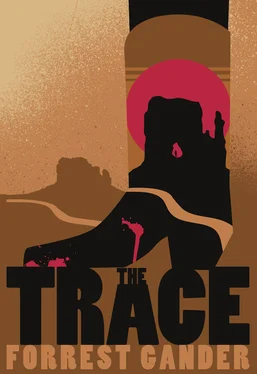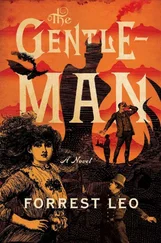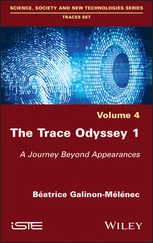Forrest Gander - The Trace
Здесь есть возможность читать онлайн «Forrest Gander - The Trace» весь текст электронной книги совершенно бесплатно (целиком полную версию без сокращений). В некоторых случаях можно слушать аудио, скачать через торрент в формате fb2 и присутствует краткое содержание. Год выпуска: 2014, Издательство: New Directions, Жанр: Современная проза, на английском языке. Описание произведения, (предисловие) а так же отзывы посетителей доступны на портале библиотеки ЛибКат.
- Название:The Trace
- Автор:
- Издательство:New Directions
- Жанр:
- Год:2014
- ISBN:нет данных
- Рейтинг книги:3 / 5. Голосов: 1
-
Избранное:Добавить в избранное
- Отзывы:
-
Ваша оценка:
- 60
- 1
- 2
- 3
- 4
- 5
The Trace: краткое содержание, описание и аннотация
Предлагаем к чтению аннотацию, описание, краткое содержание или предисловие (зависит от того, что написал сам автор книги «The Trace»). Если вы не нашли необходимую информацию о книге — напишите в комментариях, мы постараемся отыскать её.
The Trace — читать онлайн бесплатно полную книгу (весь текст) целиком
Ниже представлен текст книги, разбитый по страницам. Система сохранения места последней прочитанной страницы, позволяет с удобством читать онлайн бесплатно книгу «The Trace», без необходимости каждый раз заново искать на чём Вы остановились. Поставьте закладку, и сможете в любой момент перейти на страницу, на которой закончили чтение.
Интервал:
Закладка:
At the counter, Dale glanced at the menu. Then he turned around toward the open front door. Outside, a gray-bearded man in a gaucho hat and a lime-green guayabera sat down tranquilly at the picnic table, taking the one place shaded by a tree. Cars pulled up at the traffic light, and the old man leaned toward them solicitously, peering through their passenger-side windows.
Hoa came out of the bathroom. She glanced at the menu and ordered tortilla soup and shrimp fritters. Dale stuck to the Mexican side of the menu. Carne asada tacos with pickled red onion, roasted chili, and a tomato-cilantro salsa. Black beans cooked with bacon and beer. When he’d finished ordering, he saw that Hoa had stepped outside. She was sitting at the picnic table on the other side from the local man. Dale could see wiry gray hair under his hat. His back was turned to Hoa as though he were too shy to acknowledge strangers.
Dale came over to the table holding two plastic cups of warm Coke and a bag of peanuts. He sat on the bench next to the man and offered a hello toward the back of him. Hoa picked up her drink and made a toasting gesture.
“To the dust in our throats,” she said to Dale, “and to a dead Chinaman.” Straightfaced.
He opened the bag of peanuts on the table and pushed some over toward Hoa. They had each eaten a few when the local man turned around. As if he had been wondering for hours, he asked if they were English.
“American,” Dale answered.
The man said something that Dale didn’t understand, then he repeated it. Something about the economy.
“What,” Dale asked? In Spanish he said, “I can’t understand you.”
The local man repeated it more loudly. Just when did Dale think the economy would recover.
“I don’t know,” Dale answered, surprised. “A year or so? What do you think?” He offered the man some peanuts and the man held out his hand and took them. A few dropped onto the pavement under the bench.
The gray-haired man declared that the economy would never recover.
“So what’s next then?” Dale asked.
“Anarchy,” he said. Then he said something else difficult for Dale to understand, and he stood up. He peered down at Dale and he asked if he was Jewish.
Dale was aware of Hoa suddenly looking up from her little pile of peanut shells.
“Am I Jewish?”
“Do you have Jewish blood?”
“I don’t think so.”
“You’re not a Jew?”
Dale wanted to catch Hoa’s eyes, to give her a look, to raise his brows, but the man had him locked in.
“Why do you want to know if I’m a Jew?”
The man had moved to the head of the picnic table, with his back toward the restaurant entrance. He was pulling at his beard. Below his green shirt, he was wearing canvas pants and tire-tread sandals. He said something that was hard for Dale to comprehend, maybe on account of his accent, but Dale could tell it had to do with Jews and the economic collapse.
“I don’t know,” Dale said in Spanish. “Is that what you think?”
Dale was tense now, watching carefully to see how the man would react. The Mexican was looming in front of them at the head of the picnic table, his eyes animated, with dark brown irises, the whites yellowing around the edges. His body was rocking.
For the first time, Hoa spoke up. Not to the Mexican, but to Dale. She said, “Why do you engage him?”
The old man leered her way, asking her if Dale was a Jew. Dale didn’t know whether Hoa understood the Spanish, but she answered in English. “Yes, we’re Jewish. We don’t want to talk to you.”
The man exploded, his arms windmilling. He was shouting incomprehensibly, but what he said wasn’t the kind of thing that needed translation.
Hoa repeated stubbornly, clearly in English, “We don’t want to talk to you, go away.”
But the man had more to say. Then, like some gnome in a folktale, he whirled and stomped into the restaurant to vent his outrage at the waitress. From where he was sitting outside, Dale understood that the man was saying one of them had denied being a Jew and the other admitted it.
Hoa reined in Dale’s attention. “Why do you engage people like that? You demean yourself. It’s patronizing.”
Dale felt like he’d run into a tree. Stunned by what had just happened with the man, he was shocked all over again by Hoa’s reaction. Backpedaling while he tried to sort it out in his head, he said, “Half the time I didn’t know what he was saying.”
“You could tell what he was saying. I could tell.”
Dale’s defenses kicked in. “I listen to people. You learn things that way.”
“There was nothing to learn,” she said. “You think you were going to learn something from him about the economy?”
Dale angled for a way out. “Look,” he said, “I’ve been in bars and met guys who passed me KKK coins and I let them talk, I wanted to hear how they thought.”
“It’s not interesting,” she insisted. “Racism isn’t interesting. Stupidity isn’t interesting.”
A dark sparrow landed on the concrete, crouched, one-eyed them, and then turned its head sideways and studied the fallen peanuts under the table.
“You find out about how other people think,” Dale argued, but he knew she could hear the defeat in his voice. He could hear it.
“You could tell right away. You’re just pandering to your need for people to like you.”
That brought Dale up short.
“That’s what you did with Declan. You wanted to be his friend, and you didn’t know how to be his father. You were afraid to be firm, you left it to me so you could. . So he’d like you.”
Her eyes had welled, and now tears came over the lower eyelids. She grabbed a napkin and turned away on the bench, moving one leg to the other side. Facing the street, she wiped at the corners of her eyes.
The waitress came out and set the shrimp chips in front of her. The sparrow flew off. The chips were blue and yellow and looked like Styrofoam. Silently, the waitress turned around and returned a minute later with Dale’s tacos and beans. The man in the guayabera was sitting at the counter inside looking at the TV. Then he came back out, agitated, and he sat at the far end of the picnic table with his back to them both, as though he were sulking. Suddenly, Dale realized that the Mexican was manning the trundle cart ten feet away on the street. He hadn’t noticed it before. There were stacks of newspapers with rocks on them.
Hoa stayed sitting sideways on the bench, picking at her food mutely. When the traffic light changed, a clean, white Chevy pickup stopped at the curb, and the old man jumped up, plucked a newspaper from under the rock, and shoved it through the open passenger-side window to the driver. They were speaking to each other, and Dale wondered how the old guy knew the man in the truck wanted a paper. He watched Hoa taste her soup. They didn’t speak to each other. A bespectacled young man in a white pharmacy jacket walked over and bought a paper from the gray-bearded hawker. They exchanged a few words, and the guy in the white jacket ran his hand through his slicked hair, glancing nervously at Hoa and Dale before he re-crossed the street.
Hoa looked into the restaurant where the television was blaring by the counter. Dale considered the miscellaneous storefronts on the far side of the street. A beauty parlor. A pharmacy. A tire bay. A few cars went by in either direction. Four or five pedestrians were walking in the sun.
Now, the old man, Dale, and Hoa sat at the same table staring in three different directions. Like cattle, Hoa thought. About the time she finished her chips and soup, the waitress brought Dale some salted radishes and cucumbers. Dale asked Hoa to go ahead and pay, so she followed the waitress into the restaurant and sat on a stool at the counter inside. She stared at a music video on television while the waitress took forever making change.
Читать дальшеИнтервал:
Закладка:
Похожие книги на «The Trace»
Представляем Вашему вниманию похожие книги на «The Trace» списком для выбора. Мы отобрали схожую по названию и смыслу литературу в надежде предоставить читателям больше вариантов отыскать новые, интересные, ещё непрочитанные произведения.
Обсуждение, отзывы о книге «The Trace» и просто собственные мнения читателей. Оставьте ваши комментарии, напишите, что Вы думаете о произведении, его смысле или главных героях. Укажите что конкретно понравилось, а что нет, и почему Вы так считаете.












